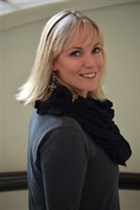
Top stories



Marketing & MediaWarner Bros. was “nice to have” but not at any price, says Netflix
Karabo Ledwaba 1 day


Logistics & TransportMaersk reroutes sailings around Africa amid Red Sea constraints
Louise Rasmussen 18 hours

More news


















Here are a few practical tips for developing adaptability:
When you catch yourself shooting an idea down or resisting something new, take a moment to consider what mental scripts are influencing your behaviour. Mental scripts have been formed over your lifetime and are so automatic that you have to decide intentionally that you want to challenge them. For example, ask yourself if 'X' is the right approach because it really is or because that is simply the way it has always been done. Doing things because they have worked in the past should ring alarm bells: it is what caused the downfall of Nokia, Blockbuster and other big names in industry. Beware of stereotypes, prejudices and anything else that may be limiting your thinking and openness to something new or different.
Resistance to change usually stems from an underlying fear. We all fear failure, humiliation, loss of power/control and rejection, and these fears, whether rational or not, can be debilitating. Identify the fear(s) that may be preventing you from embracing change and ask, “What is the worst thing that could happen if I acknowledged the fear and did something new anyway?” Another powerful question is “What will the long-term impact be of failure / humiliation / losing control in this context? Will it even matter six months from now or will my life be better?”
Do you habitually insist on going "by the book"? Is this necessary for every issue? Might you enhance your productivity if you paid more attention on getting to the results rather than blindly following process? What would happen if you applied standard procedures more flexibly? What would the impact be if you started asking questions like “What if we tried it this way, this time?” Habits make us feel comfortable and in control but they do not always serve us in a rapidly evolving world. Move out of your comfort zone and you will grow, guaranteed!
Look for places or situations where adaptability has served people and organisations. If you build a portfolio of positive examples, you will be more inclined to “lean in” (to use a phrase coined by Facebook COO, Sheryl Sandberg) to change. Opening your awareness to where adaptability has worked will make the idea more appealing and you will build a toolkit of good ideas that you can put into practice. Use the ideas of others until adaptability becomes second nature.
Live in the present moment, but plan for the future. You will most often run into trouble with change when you spend much of your time worrying about the past. Looking backwards too much will not serve you. Focus instead on “what next” or “where to from here”. Looking forward with positivity and hopefulness will help you act differently.
Adaptability and change can be exhausting. Replenish your energy stores in the solace of things that do stay the same. While nothing in life is permanent, there are certain things you can count on. If you think of these things when you’re in need, it just may provide you with comfort.
